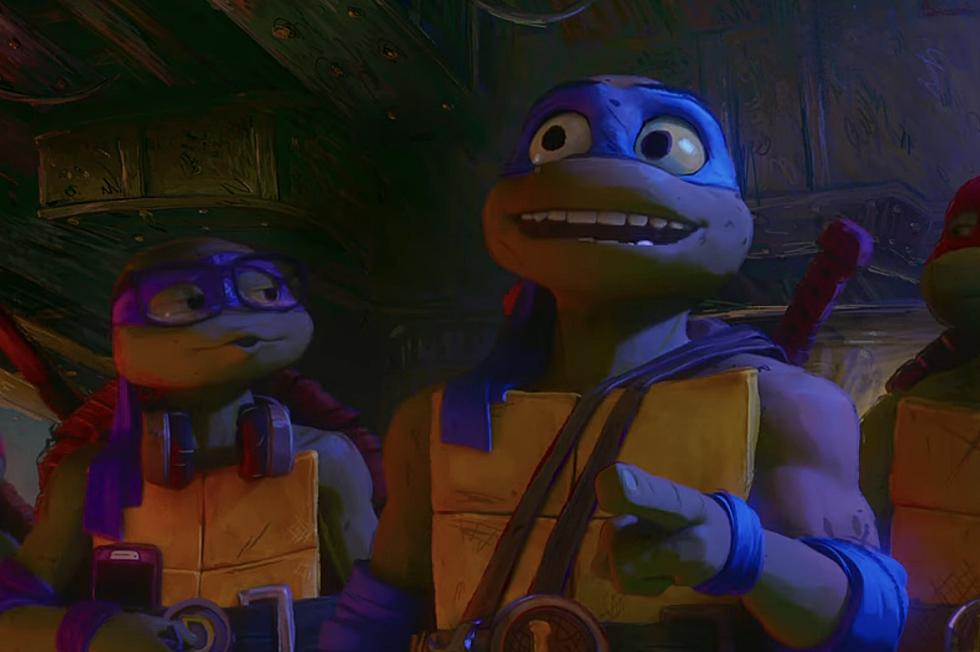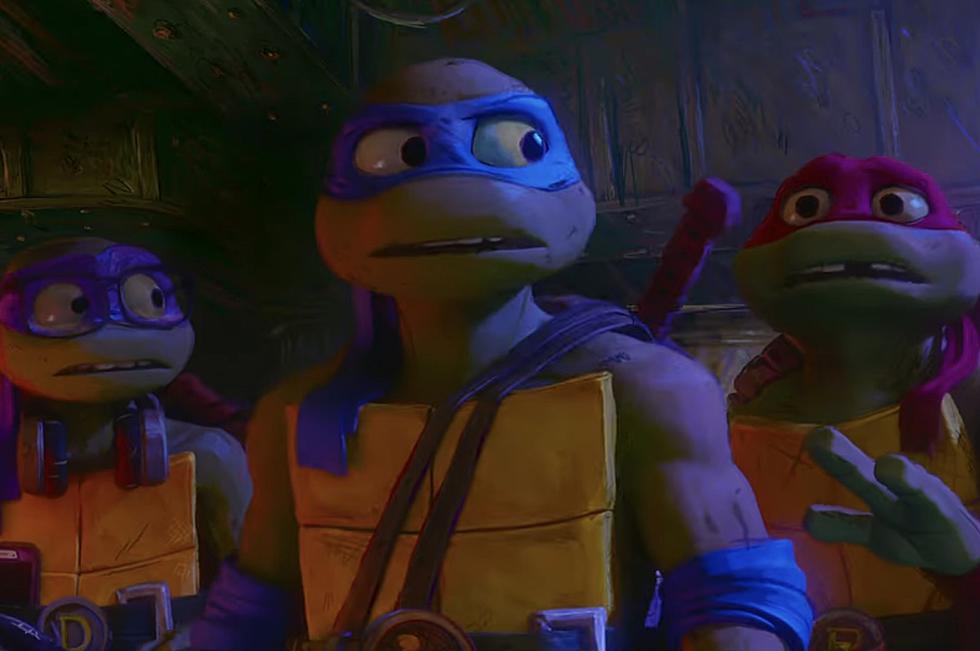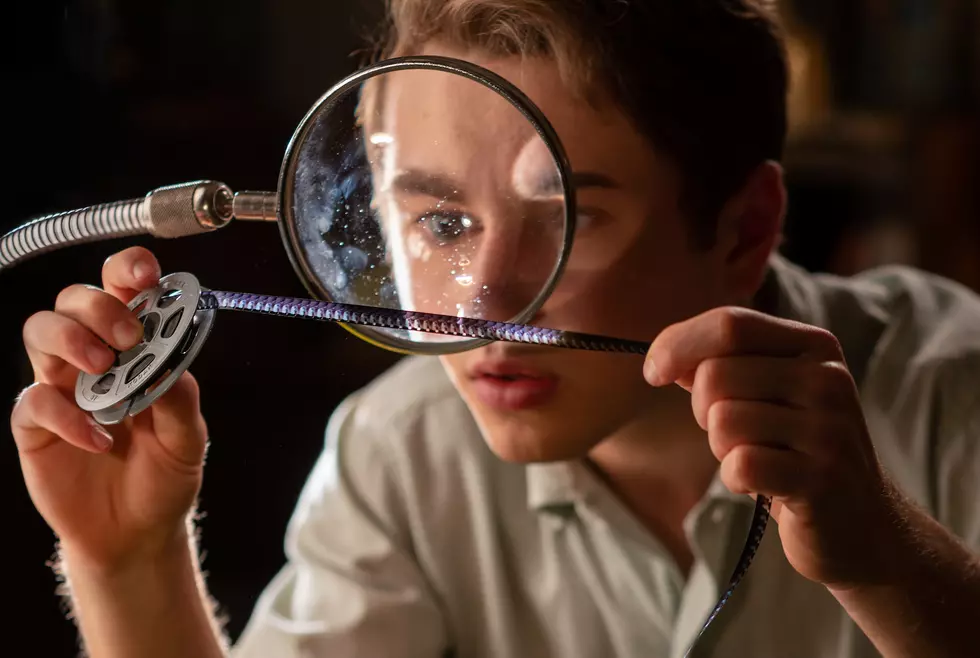
Nick Stoller on ‘Neighbors 2’ and Consulting with Lena Dunham On His Feminist Script
Writing a comedy sequel that’s as good as (or better than) the first movie is a rare achievement. But if there’s anyone who can do it, it’s Nick Stoller.
The comedy writer-director behind Forgetting Sarah Marshall and Get Him to The Greek surprised us with 2014’s Neighbors, which found Seth Rogen and Rose Byrne’s new parents squaring off with Zac Efron’s frat president. In Neighbors 2: Sorority Rising, Stoller, who’s directing and co-writing this time, has found a delightful mixture of raunchy humor and progressive storytelling. The sequel finds a group of college girls starting their own sorority in protest of a rule that prohibits sorority sisters from throwing parties (which is a real thing, by the way). Chloe Grace Moretz’ Shelby and her friends move into the former Delta Phi house, inciting renewed neighborhood warfare with Rogen’s Mac and Byrne’s Kelly.
I talked to Stoller over the phone about the sequel and its feminist message, something you wouldn’t expect from a movie with five men credited on the screenplay. Stoller told me he consulted with Lena Dunham and two additional female writers (credited as associate producers) for the script, explained why he made a returning character gay, and provided a few details about his upcoming Netflix series. (Minor spoilers follow.)
You don’t often see college comedies with positive messages about young women. Was including that in this sequel something you wanted to tackle from the start?
Yeah, it very quickly kind of organically grew from the sorority plot. We wanted it to be about a sorority; it just made sense for the sequel. And I don’t like to make – none of my movies have villains in them. I don’t think villains are interesting in comedies, so it made sense that it wold be about a group of women trying to figure out how to make a sorority. And then we learned about the rule, that sororities aren’t allowed to throw parties, which seemed completely insane to us. It kinda of naturally led us towards this kind of feminist plot.
It is surprising to see this feminist commentary come from only male writers. Did you consult with any female writers on the script?
Yeah, we had two writers on set who were both women comedy writers, Amanda Lund and Maria Blasucci, just to make sure we weren’t accidentally writing guy dialogue for women. I spent a lot of time working with Chloe, Keirsey Clemons, and Beanie Feldstein to make sure – like I always interview everyone [in] kind of a long interview process before we start shooting just to make sure everything’s in the characters’ voices. And we sent it to some writers who are women that we really respect. I sent it to Lena Dunham because she knows more about feminism than maybe anyone on the planet, just to make sure we weren’t accidentally doing anything that was offensive. And she also sent us jokes and stuff, so that was really cool of her. And I know Seth and Evan [Goldberg] sent it to some women directors. So we were very careful to make sure we weren’t accidentally doing anything wrong. But then honestly it ends up being, I think like the first movie, like Zac’s story, ultimately emotionally pretty gender-neutral. It’s just about a person who’s scared to graduate from college, and that could relate to women or men. And in the sequel it’s that 18-year-old entering college and they’re scared. And that’s true, again, for women or men. So I think emotionally the story was relatable for anyone.
Had you reached out to other writers before on your other movies to make sure nothing was offensive, or was this the first time you took that approach?
Um, offensive is kind of the wrong word. I would just say to make sure it wasn’t wrong. So yeah, I’ve always done that. For example on Get Him to the Greek, I’ve fortunately never suffered from addiction, but that entire movie is about addiction so I had long interviews with Russell Brand just to make sure it all made emotional sense, and that the character journey of that movie was correct. With Five-Year Engagement, for example, I’d gotten engaged, I’m married so I knew emotionally a lot of what that movie was going to be about, so I didn’t need to consult a lot of people. But yeah, on this one just because we were touching a lot of third rail topics, we just wanted to make sure we were doing them justice and being truthful and honest to those subject matters.
In addition, the [gay] wedding plot, I spoke to a friend of mine who’s a comedy writer who’s gay just to make sure we weren’t actually making the joke like, “Isn’t it funny that he’s gay?” We didn’t want that to be the joke, that needed to be an emotional story about Zac [Efron] being left behind by his friend. I try to do that basically with everything I do, this one just had more topics than most.
When Pete comes out as gay in movie it’s such a great surprise. It’s exciting to see since it’s really one of the first positive depictions of a gay relationship in a big comedy. What was the choice behind that?
On the first movie I was doing the junket and someone asked me why I’ve never had a gay character in my movies. And I was like, “I don’t know! That’s not great.” So it was a little bit of a response to that, but also there was so much homoeroticism in the first movie between Dave [Franco] and Zac that I was like, it actually just makes sense that he would be gay, it just does. You just kind of buy it. And that made me think that he was closeted while in college, which is certainly something, I mean it’s becoming fortunately less prevalent now, but it was certainly true when I was in college.
In a sense the sequel feels like a reflection of how conversations on gender equality, same-sex marriage, and even race relations have changed in the last couple years. Did you want the movie to reflect that cultural shift?
Yeah, I think you just always, especially in a comedy, you want to be ahead of the conversation as much as you possibly can. It wasn’t sort of conscious that all these things happen, but myself and Seth and all of us [who] worked on it wanted it to be – you know, the funniest stuff is always the freshest stuff; the stuff people are talking about or just start talking about. That was the goal behind it. It all kind of happened to land in this movie in that way.
What was really cool was when the [gay marriage] proposal happens, there’s been such an amazing sea of change over gay issues that the audience was just immediately on board. There wasn’t any, like nobody laughed in the wrong way. You know? Which was really cool.
There’s some great moments in the movie could that lend to some spin-offs, like a gay wedding planner movie. Would that ever happen?
[Laughs] It’s certainly something we’ve discussed internally. It could be really funny.
Or even a Hannibal Buress and Jerrod Carmichael spin-off. I’d totally see that.
We shot so much more stuff with them, too. The story unfortunately didn’t support it so we had to cut it, but we had a whole subplot with them.
That’s too bad. Hopefully it’s released later.
I think it’s going to be on the deleted scenes.
Do you have an idea for a third movie? Are there plans in place for one yet?
No, we haven’t figure that out yet. We have to see what happens with this. But I love the cast and I love working with Seth and his producing partners, so it’s certainly something that would be fun to do if we’re given the opportunity.
In comparison to the first movie where there was a frat house full of guys, what was it like on set this time with a bunch of young actresses?
For me what’s funny is that I’m 40 so being around girls that are like 18 to 21, like all I’m trying to do is not be creepy. That’s my whole thing when I get to set. Beyond that I would say it wasn’t ultimately that different. We’re trying to make something that’s super funny. We’re trying to stay in the tone. Because I’m a guy it’s easier for me to pitch like, dick jokes and stuff than it is to pitch like, I don’t know what the term would be but women-centric comedy. But having said that, once we figured out who these characters were and what they’re going through, it became the same thing. They were playing scared kids who were trying to figure their shit out, and that is always the same sort of thing.
You also have a new Netflix series coming up. Do you plan for that to be as self-aware and issues-focused as this sequel is?
It’s pretty different. It’s more autobiographical. It’s about six friends who are all approaching 40 who all went to Harvard, and what that’s about. Almost like The Big Chill, but more of a comedy than that. So it’s a little different and also I co-created The Carmichael Show and every week we deal with an issue and that’s really built for that. This would be a little more – we’ll certainly be talking about issues in the show because that’s what one does in life, but it’s not going to be quite as about that.
Neighbors 2: Sorority Rising opens May 20.
More From ScreenCrush









